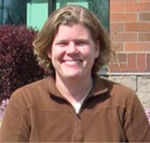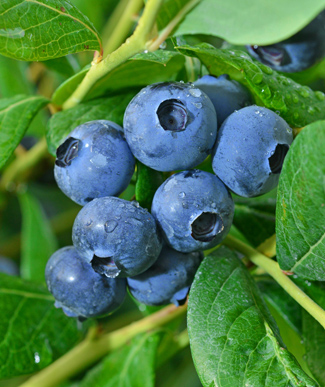Northwest Center for Small Fruits Research Gets Funding Boost
In what USDA-ARS Horticultural Crops Research Unit Leader Inga Zasada called an unprecedented development, the Northwest Center for Small Fruits Research has received a funding increase from the Agricultural Research Service of $3.5 million.
Zasada said much of the credit for securing the increase should go to growers, administrators and other stakeholders who annually travel to Washington, D.C.
 |
Inga Zasada, USDA-ARS Horticultural Crops Research Unit Leader |
“That is a tangible outcome for this center,” Zasada said. “Without them going back to D.C. year after year after year to advocate for increased funding to support small fruits research, that wouldn’t have happened.”
One-third of the funding increase, or $1 million, is designated for blueberry research and will be used in part to hire a new blueberry breeder. Chad Finn, who died in a tragic accident last December while on vacation in Hawaii, had led the center’s breeding efforts into several small fruits, including blueberries, from 1993 until his death.
The Center on June 1 brought in Michael Hardigan, a postdoctoral research scientist, to carry on with Finn’s work until the Center can bring in two permanent breeders, with one dedicated solely to blueberry research.
“Our strategy was to get a Ph.D. scientist in here to be part of the breeding program and work with the technicians in place here now to make sure we don’t lose continuity in this cooperative breeding program with Oregon State University,” Zasada said.
Hardigan takes more of a geneticist approach to breeding than Finn did, according to Zasada. In introducing himself to Center stakeholders, Hardigan wrote that he contributed to the development of molecular tools needed to introduce genomic prediction into traditional strawberry breeding while in the strawberry breeding program at U.C. Davis, where he spent the past three years.
Hardigan has experience in blueberry breeding from his time at Michigan State University, where he obtained his bachelor’s degree and his Ph.D.
Zasada said Hardigan expressed interest in coming to Corvallis to learn more about traditional breeding, including in-field evaluation of material.
“His coming here was a desire to make a linkage with classical breeding,” Zasada said, “to go out in the field and learn how to evaluate material; to be able to look at material and understand if it is of the quality that we want to advance to a patented number and then a variety.”
 |
Zasada added that those are skills the center is looking for in upcoming hires. “We need someone who wants to learn about the material,” she said. “We want someone with Chad’s vision of a classical breeder and someone who is going to take it to the next scientific level by adopting molecular approaches to speed up selection for certain traits.”
She said the Center hopes to begin advertising for the blueberry breeder position and a position that will focus on caneberries this fall. Hardigan’s appointment is guaranteed for a minimum of two years.
The Center also is adding a full-time virologist to replace Bob Martin, who split his duties between virology and research leader for the last several years of his lengthy stint at the Center. Martin retired at the end of 2019.
The Northwest Center for Small Fruits Research (NCSFR) has a lengthy legacy of contributing to small fruits research dating to 1992, when it opened four years after leaders in the small fruits industry first launched the idea to start the Center. Funded through the USDA, the NCSFR includes researchers from the three Northwest land grant universities and involves input from industry stakeholders that help coordinate its research activities, as well as advocate for small fruits research.
The NCSFR also funds some private research.
“From my perspective, it is a very unique partnership,” Zasada said. “I don’t think there are many other examples of partnerships like this in the U.S. and it is super effective in its output and in getting money to fund small fruits research.”
The NCSFR has funded $1.5 million worth of small fruits research this fiscal year, she said, an increase of approximately $700,000 over the previous year.
“We essentially doubled that pool of money that was available for regional research this year,” Zasada said.
Over its span, the NCSFR has supported more than two dozen researchers in their efforts to improve the economic viability and sustainability of the production of small fruits in the Pacific Northwest.